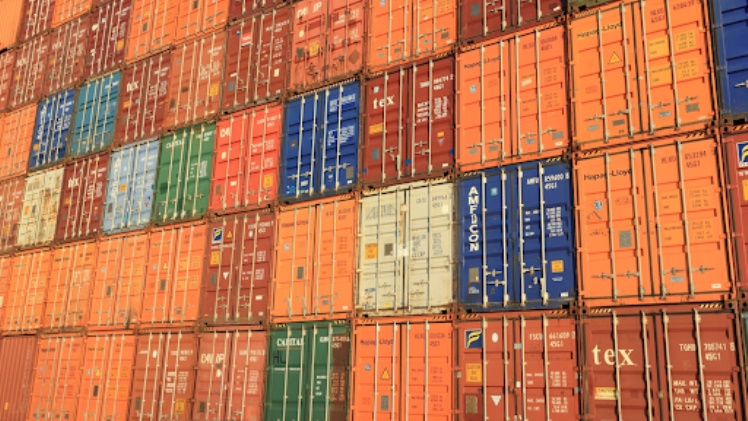Malaysia, a country with a vibrant economy, has seen consistent growth over the past few decades. This economic expansion has made Malaysia a significant player in international trade, fostering strong relationships with other nations and trading partners, resulting in a substantial increase in imports and exports. This article offers an in-depth overview of Malaysia’s current state of import and export trade. We’ll delve into its top trading partners, major trade activities, and potential areas for further development.
The Historical Context of Malaysia’s Import and Export Trade
Malaysia’s involvement in global trade dates back centuries, shaping its rich history. As early as the 16th century, Malaysia played a vital role in the spice route, connecting India to China. This facilitated trade in spices, textiles, and other goods between East Asia and Europe.
In more recent times, Malaysia’s strategic location in Southeast Asia has transformed it into a crucial hub for global trade. Top import export in Malaysia has become increasingly essential, offering access to major markets like China, India, Japan, Australia, and Europe. Coupled with robust infrastructure and favourable fiscal policies that promote business growth, Malaysia has consistently ranked among the top 10 exporting countries, with an annual export value of around $182 billion.
Electronics, particularly semiconductors, account for roughly one-third of Malaysia’s annual exports. Other significant products include palm oil, of which Malaysia is one of the world’s largest producers and textile goods such as batik fabric and rubber products.

Top Exports from Malaysia
Malaysia, an emerging economy in Southeast Asia, plays a vital role in the global economy, with exports contributing to over 70% of its GDP.
Electrical Machinery and Equipment: Malaysia is renowned for its electronic exports, including semiconductors, computers, communication equipment, and consumer electronics like mobile phones and televisions. In 2019, these exports accounted for approximately 25% of the country’s total exports.
Palm Oil: Palm oil is another major export product, making up 10-15% of Malaysia’s total exports by value. It is used globally in various applications, including cooking, biofuel production, and cosmetics manufacturing.
Petroleum Products: Malaysia relies heavily on petroleum product imports to meet domestic demand and global needs. In 2019, the country exported petroleum products worth $13 billion.
Optical Instruments & Apparatus: Malaysia also exports optical instruments and apparatus, with an export value of $3 billion in 2019.
Top Imports to Malaysia
Malaysia boasts a diverse and open economy, welcoming a wide range of imports each year, including electronics, machinery, petroleum products, and food products.
Electronics: Imports of electronic goods, from computers to gaming systems, play a pivotal role in Malaysia’s economic growth.
Machinery: Machinery imports, encompassing agricultural equipment, construction materials, and industrial machines, contribute significantly to job creation in manufacturing industries.
Petroleum Products: To fuel both domestic consumption and global export needs, Malaysia imports petroleum products.
Food Products: Located at the heart of Southeast Asia’s growing food market, Malaysia imports fresh produce and other food items.
Benefits of Trade for Malaysia
International trade has bestowed numerous benefits upon Malaysia, further propelling its economic growth.
Improved Economic Growth: Trade diversification has introduced new income sources for Malaysian businesses. By expanding markets and attracting foreign investments through international agreements, such as free trade agreements (FTAs), Malaysia has experienced accelerated economic growth. This growth has also created jobs within the country as businesses seek skilled workers to meet rising international demand.
Access to Resources & Technology: International trade grants access to resources otherwise scarce in Malaysia, such as food items or raw materials for manufacturing. It also provides access to advanced technologies, strengthening the nation’s competitiveness on a global scale.
Challenges Faced by Malaysian Businesses in International Trade
While Malaysia enjoys the benefits of international trade, it also grapples with several challenges:
Language Barriers: Malaysia’s diverse population speaks multiple languages, which can pose communication challenges when dealing with foreign partners. Misunderstandings due to language differences can impact business transactions.
Cross-Cultural Differences and Legal Systems: Variances in culture and legal systems between Malaysia and its trading partners can complicate international trade agreements. Malaysian businesses must understand these differences fully to navigate international trade successfully.
Limited Access to Market Information: Access to market information outside Malaysia may be restricted, as much of the country’s data relies on domestic sources. Expanding market intelligence is essential to maximise opportunities abroad.
Conclusion
In conclusion, Malaysia stands as a pivotal player in the global trade arena, particularly in imports and exports. With its strategic location, robust infrastructure, and network of ports, Malaysia is poised to capitalise on the continually growing trade sector. Its increasing gross domestic product and rising exports over the past decade underscore the nation’s commitment to enhancing its infrastructure and diversifying export markets, ensuring sustained growth in trade import and export activities in the years to come.


